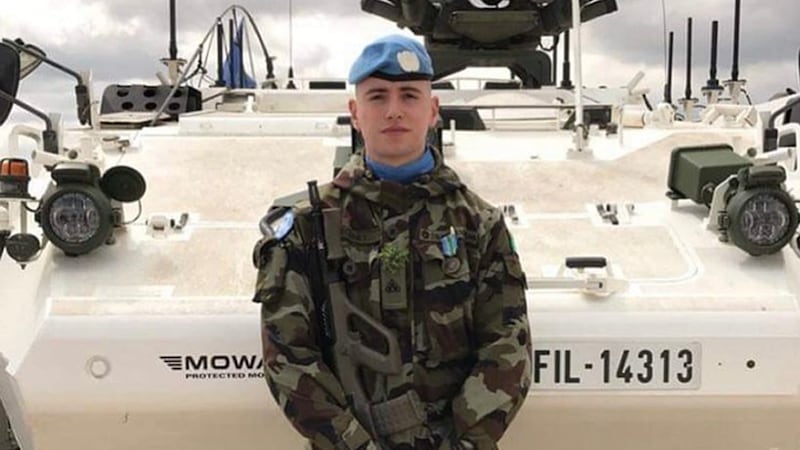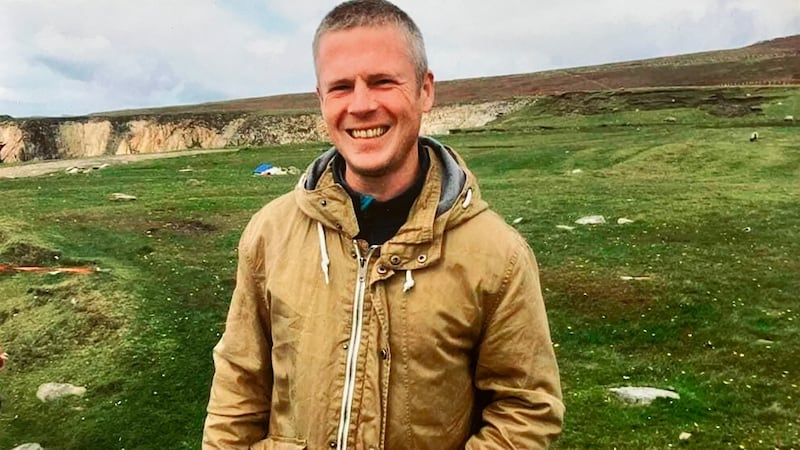Irish-Palestinian man Zak Hania has not been accepted on to a list of evacuees from the Gaza Strip, with Irish authorities on Tuesday informing him that they are unable to assist in his efforts to leave the embattled enclave.
Mr Hania was informed on Tuesday by a Department of Foreign Affairs (DFA) official that “relevant authorities” have not accepted his name on to a list of Irish citizens with clearance to leave Gaza through the Rafah Crossing.
Mr Hania’s wife Batoul and four Irish-born sons – Mazen, Ismael, Ahmed and Nour – arrived in Ireland on Sunday after escaping Gaza.
“To be honest, I am not really sure what to do,” Mr Hania said in a WhatsApp voice message on Tuesday evening.
RM Block
Some of his friends have been in touch with the Department, to try to push for his evacuation, he said. “So I will wait, for the next few days, to see what’s happening or what’s going to happen.
“I am not feeling great to be honest. [My] family are frustrated, my wife and kids. I try to tell them I am okay and things are okay, to calm them down, but they are worried.
“When I talk to them, they are nervous and worried, because we are in a dangerous place,” he said.
Mr Hania is staying in Khan Younis, in the south of the Gaza Strip. “The situation here is better than the north, but it’s not safe – you don’t feel safe. But it’s less constant. Yesterday they bombed a flat in the area where I live,” he said.
“Hopefully things work out – we will see what happens in the next few days.”
The Department of Foreign Affairs said it was aware of Mr Hania’s case, and is providing consular assistance. “We do not comment on the detail of individual consular cases,” a spokesperson said.
Mr Hania, a researcher and translator, moved to Ireland in 1998, and lived in Castleknock, west Dublin for a period. He returned to Gaza about a decade ago.
On Tuesday evening, Taoiseach Leo Varadkar met a group of Arab Ambassadors to Ireland, and with representatives of some Islamic countries, to discuss the situation in Gaza and Irish citizens in the territory, including Emily Hand.
Speaking after the meeting, Mr Varadkar said: “My meeting with representatives from Arab States and from the Islamic world was an opportunity to hear their views on the deteriorating situation in Gaza and the West Bank, and on the conflict between Israel and Hamas.
“We discussed the dire humanitarian circumstances in Gaza, agreed on the urgent need for an immediate ceasefire, and a significant scaling up of humanitarian access and aid to civilians.
“The enormous number of civilian deaths is deeply shocking. International humanitarian law applies in all conflicts, in all circumstances, to State and non-State actors alike. Attacks on schools and healthcare facilities must cease. I particularly emphasised the need for us to work with our partners in the Middle East to de-escalate the crisis, and turn our efforts back to securing a sustainable peace based on the two-State solution.
“I thanked the Ambassadors for their countries’ support in helping 51 Irish citizens and their dependents to leave Gaza. I also asked the representatives to use any influence their countries have to secure the immediate and unconditional release of all hostages being held in Gaza by Hamas. In particular, I raised the case of Emily Hand and asked for continued assistance to help secure her release.”















